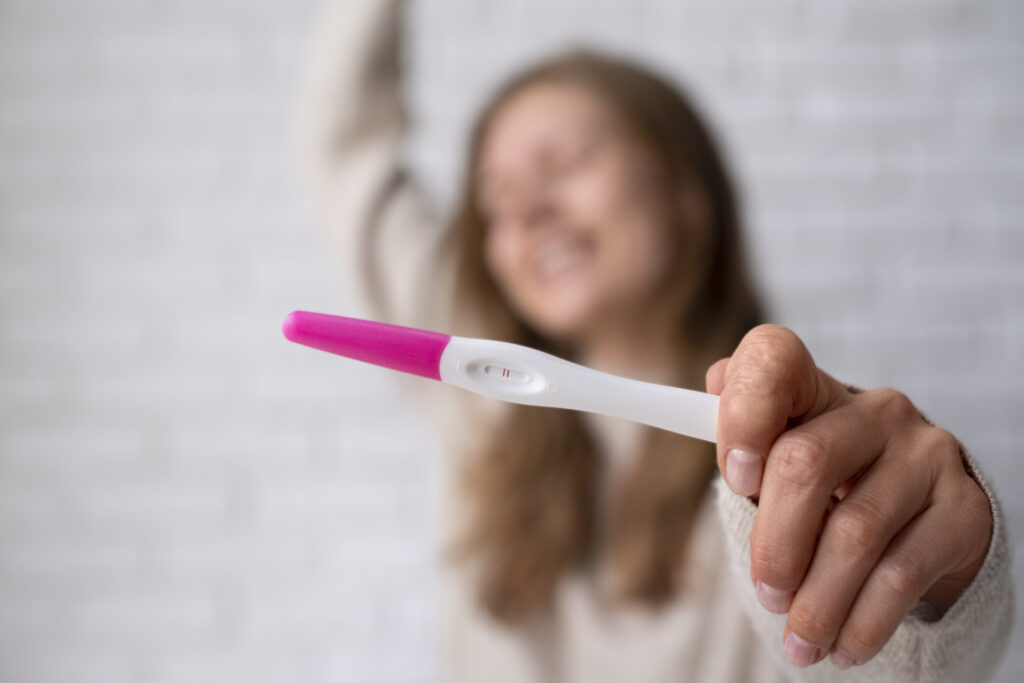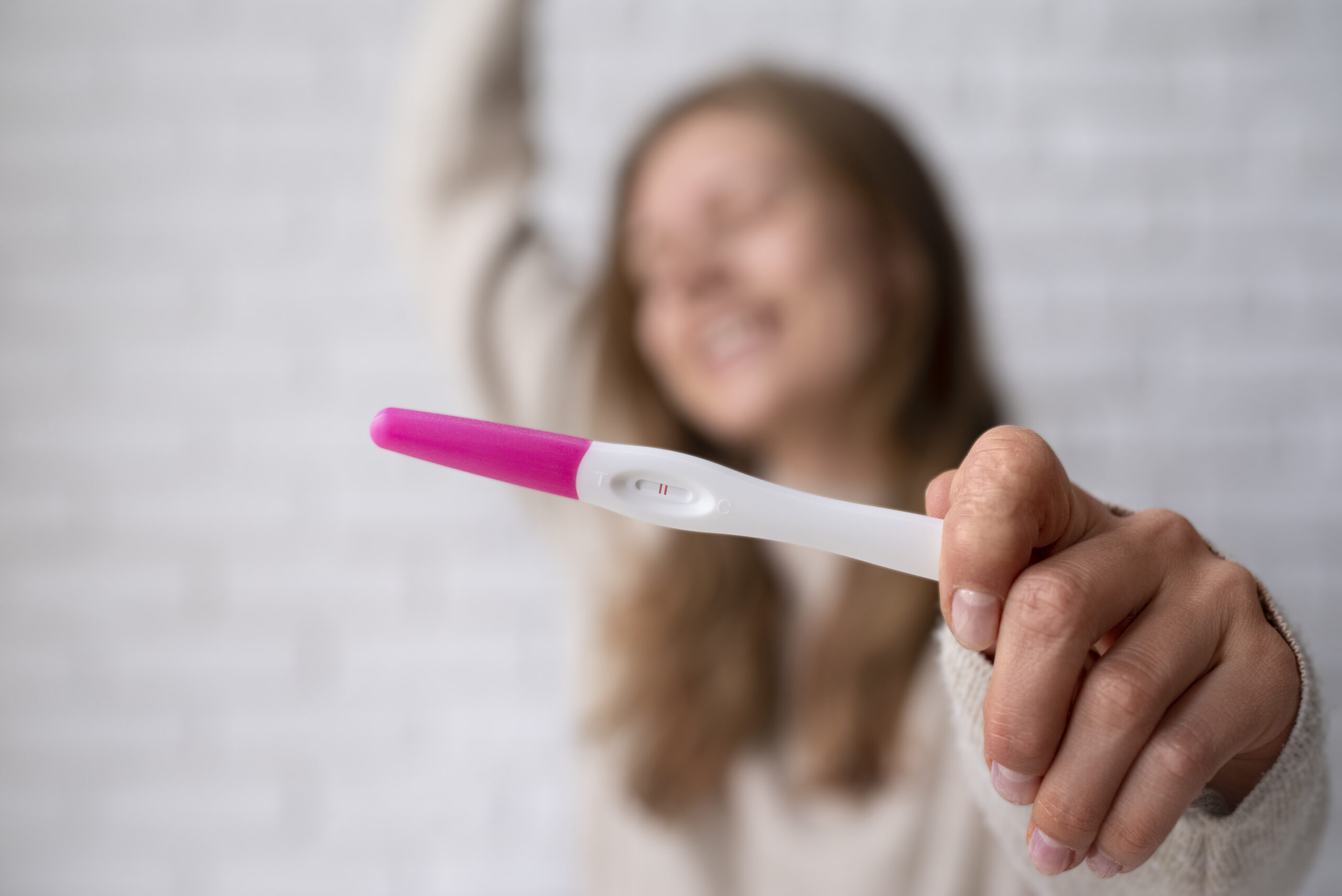Learn the best time to take a pregnancy test for accurate results. Understand how early pregnancy signs impact testing accuracy and avoid false negatives.
One of the most important moments in a woman’s life is discovering whether she’s pregnant. With numerous types of pregnancy tests available on the market, the timing of when you take the test is crucial for obtaining accurate results. When is the best time to take a pregnancy test? What early signs should you be looking out for? How can you ensure maximum accuracy when testing?
In this article, we’ll provide a comprehensive guide on the best time to take a pregnancy test, how early signs of pregnancy influence testing, and how to avoid common pitfalls like false negatives. By understanding these factors, you can take the test at the optimal time and get reliable results.
Understanding How Pregnancy Tests Work
Before we dive into the timing of pregnancy tests, it’s important to understand how they function. Pregnancy tests detect the presence of human chorionic gonadotropin (hCG), a hormone produced by the placenta after implantation. This hormone appears in your blood and urine shortly after the fertilized egg attaches to the uterine wall.
There are two main types of pregnancy tests:
- Urine tests: Most over-the-counter tests fall into this category and can be taken at home.
- Blood tests: These are performed in a healthcare provider’s office and can detect pregnancy earlier than urine tests.
Knowing how pregnancy tests work can help you better interpret the results and choose the right time to test.

The Importance of Timing: Why It Matters
Timing is one of the most critical factors in ensuring an accurate pregnancy test result. If you take the test too early, there might not be enough hCG in your urine to produce a positive result, even if you are pregnant. This could lead to a false negative.
- Testing too soon: The body needs time to produce detectable levels of hCG. If you test too early after conception, even the most sensitive tests may not pick up the hormone.
- The ideal time: Most experts recommend waiting until the first day of your missed period to test. By then, your body will likely have produced enough hCG for a reliable result.
Understanding your menstrual cycle and how long after ovulation implantation typically occurs can help you pinpoint the ideal time to take a pregnancy test.
Early Signs of Pregnancy: What to Look Out For
Before you even take a pregnancy test, there are several early signs of pregnancy that might clue you in to the possibility. These symptoms are caused by hormonal changes in your body as it adjusts to the early stages of pregnancy.
Common Early Pregnancy Symptoms
- Missed period: The most obvious and reliable sign of pregnancy is a missed period. However, other factors, such as stress or changes in lifestyle, can also cause your period to be late.
- Breast tenderness: Hormonal changes can make your breasts feel swollen, sore, or sensitive to touch.
- Fatigue: Many women feel unusually tired in the early stages of pregnancy due to rising progesterone levels.
- Nausea: Often referred to as morning sickness, nausea can begin as early as two weeks after conception.
These early symptoms can be an indicator that it’s time to take a pregnancy test. However, since symptoms can vary widely, it’s important not to rely on them alone when deciding to test.
Best Time to Take a Pregnancy Test: Maximizing Accuracy
Testing Before Your Missed Period
Some pregnancy tests claim to provide results as early as four or five days before your missed period. These early detection tests are designed to detect lower levels of hCG. However, while they may work for some women, they are not always accurate. The earlier you test, the higher the chance of a false negative.
For the most reliable results, it’s best to wait until after your missed period to take a pregnancy test. If you test too early, even a small amount of hCG may not register, leading to incorrect results.
Testing After Your Missed Period
The ideal time to take a pregnancy test is on the day of your missed period or later. By this point, your body should have produced enough hCG to be detectable by most at-home pregnancy tests. If the test is positive, you can be fairly confident that you’re pregnant. If it’s negative but you still suspect you might be pregnant, wait a few days and test again.
Best Practices for Taking a Pregnancy Test
Follow the Instructions
One of the most common reasons for inaccurate test results is not following the instructions properly. Different brands of pregnancy tests may have slightly different usage instructions, so it’s important to read the box carefully.
- Urinate in the morning: hCG levels are more concentrated in your urine after you’ve gone several hours without urinating (like overnight). For the best chance of detecting pregnancy early, take the test first thing in the morning.
- Check the time: Most tests require you to wait a certain amount of time before reading the results, typically between three and five minutes.
Repeat Testing for Accuracy
If your test result is negative but you still think you might be pregnant, it’s possible that you tested too early. In this case, wait a few days and test again. In some cases, hCG levels may take longer to rise, and a positive result may not show up until a week or more after a missed period.
Avoiding False Negatives and False Positives
What Causes a False Negative?
A false negative occurs when the test says you’re not pregnant, but you actually are. This can happen if:
- You took the test too early before enough hCG was present.
- You didn’t follow the test instructions correctly.
- The test was expired or faulty.
If you receive a negative result but still believe you might be pregnant, it’s best to wait a few days and retest.
What Causes a False Positive?
A false positive is much rarer but can happen if you have recently had a miscarriage or abortion, as hCG can remain in your system for a while afterward. Certain medications containing hCG may also cause a false positive.
Blood Tests vs. Urine Tests: Which Is More Accurate?
For women who want to confirm a pregnancy early, a blood test may be a better option. Blood tests can detect hCG much earlier than urine tests, typically about six to eight days after ovulation. There are two types of blood tests:
- Qualitative hCG tests: These simply provide a “yes” or “no” answer to whether you’re pregnant.
- Quantitative hCG tests: These measure the exact level of hCG in your blood, which can provide more information about how far along you are in the pregnancy.
If you’re looking for the earliest possible confirmation, a blood test performed by your healthcare provider may be your best bet.
Internal Links for More Information
To explore more information on pregnancy and related topics, check out these links:
- Pregnancy Symptoms: Learn more about the signs and symptoms of early pregnancy.
- Pregnancy Testing: A guide to understanding pregnancy tests and timing.
- Postpartum: Everything you need to know about postpartum care and recovery.
External Links for Further Reading
- Planned Parenthood – Pregnancy Testing: A resource on when and how to take a pregnancy test for accurate results (Planned Parenthood).
- Mayo Clinic – Pregnancy Tests: Information on pregnancy testing and early detection (Mayo Clinic Pregnancy Test).
- American Pregnancy Association: A detailed guide to pregnancy tests and how to use them correctly (American Pregnancy).
Conclusion
Taking a pregnancy test can be a nerve-wracking experience, but understanding the best time to test and following a few simple guidelines can help you maximize accuracy. For most women, waiting until after a missed period provides the most reliable results, but early detection tests may also work for those who can’t wait.
Be sure to follow the test instructions carefully and consider retesting if you get a negative result but still suspect pregnancy. If in doubt, or if you’re experiencing unusual symptoms, a visit to your healthcare provider for a blood test may give you the clarity you need.
The journey toward discovering a pregnancy can be both exciting and stressful. By being informed about the best practices for pregnancy testing, you can ensure you get the most accurate and reliable results possible.
